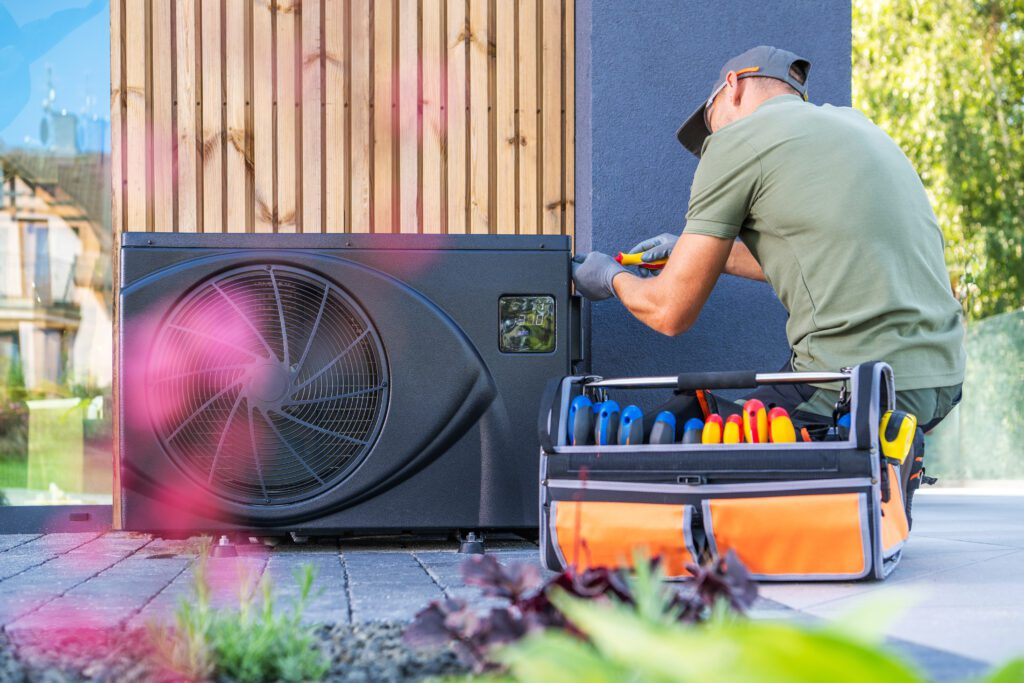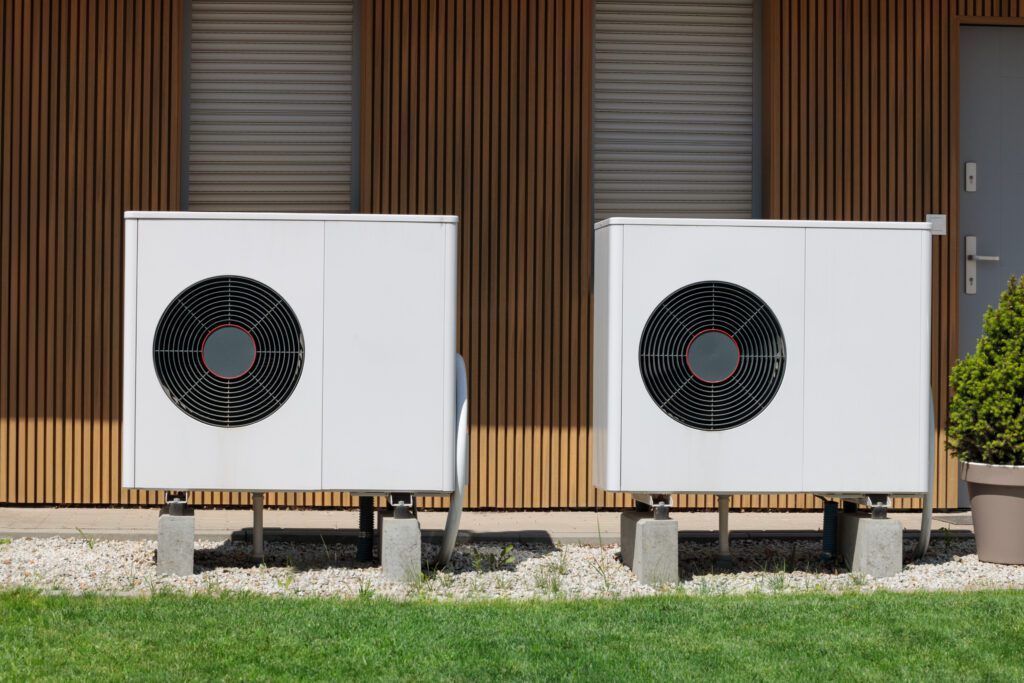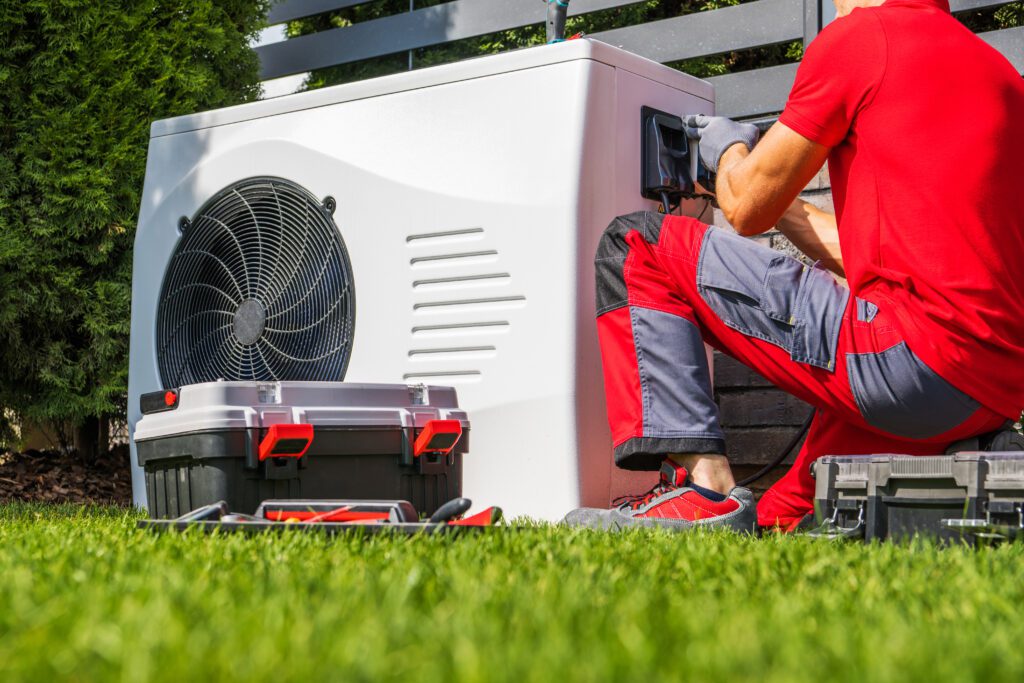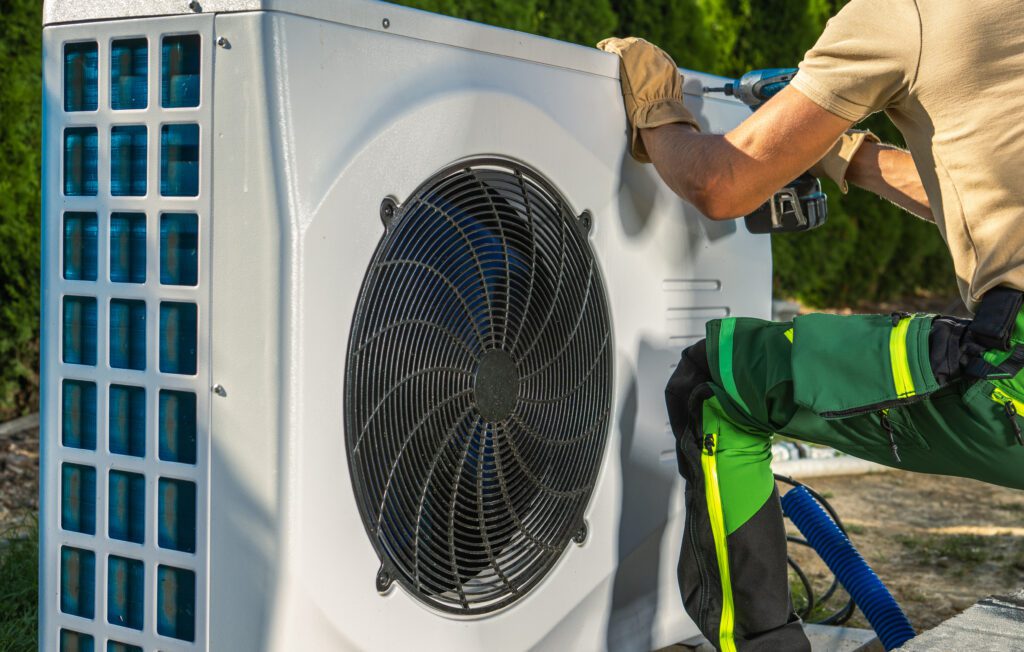For residents of Martinsburg, WV, ensuring that your home is efficiently heated and cooled is crucial, especially during extreme weather conditions. One of the key components to achieving this efficiency is the heat pump. Understanding when and how to replace your heat pump can significantly impact your home’s comfort level and energy bills. This article provides essential tips for Martinsburg residents considering a heat pump replacement.
Understanding the Importance of Heat Pump Replacement
Replacing your heat pump when necessary is vital for maintaining your home’s climate control. An efficiently functioning heat pump keeps your living space comfortable while utilizing energy wisely. Over time, heat pumps may lose efficiency, which can lead to increased utility costs and uneven heating or cooling throughout your home.
The replacement of an aging heat pump can also improve indoor air quality. Older units may not effectively filter pollutants and allergens from the air, leading to dust and other irritants circulating in your living space. A new unit can provide better filtration, ensuring that you and your family breathe cleaner air. Furthermore, modern heat pumps are often equipped with advanced technology that can monitor air quality and adjust settings accordingly, providing an added layer of comfort and health benefits.
The Role of Heat Pumps in Your Home
Heat pumps are essential devices that provide both heating and cooling by transferring heat between your home and the outside environment. In the winter months, they extract heat from the cold outside air and pump it indoors. During the warmer months, the process reverses, pulling heat from inside your home to cool it down.
This dual-functionality makes heat pumps an efficient choice for year-round climate control. They are often more energy-efficient than traditional heating and cooling systems, as they transfer heat rather than generate it through combustion. For residents in Martinsburg, where temperatures can fluctuate dramatically, the adaptation of heat pumps to seasonal changes is particularly advantageous. In addition to their efficiency, heat pumps can also contribute to a more sustainable lifestyle, as they typically use less energy and can be paired with renewable energy sources, such as solar panels, to further reduce your carbon footprint.
Signs Your Heat Pump Needs Replacement
Recognizing the signs that your heat pump requires replacement can save you both money and discomfort. One major indicator is frequent breakdowns; if your heat pump requires repairs multiple times a year, it may be time to consider a replacement.
Another sign is a noticeable increase in energy bills. If your heating and cooling costs suddenly spike without an increase in usage, your heat pump may be laboring to maintain efficiency. Additionally, look for inconsistent temperatures in different rooms or the presence of unusual noises and odors while the unit is operating; these can also signal that replacement is needed. It’s also important to consider the age of your heat pump; if it’s over 10-15 years old, even if it seems to be functioning, it may be worth evaluating its efficiency against newer models that incorporate the latest technology and energy-saving features. Regular maintenance and inspections can also help prolong the life of your unit, but knowing when to replace it is crucial for optimal performance and comfort in your home.
Evaluating Different Types of Heat Pumps

When considering a heat pump replacement, it’s essential to evaluate the different types available in the market to choose the one that best suits your needs. Each type has its advantages and fits different home setups and climates.
Air Source Heat Pumps
Air source heat pumps are the most common type used in residential settings. They work by pulling heat from outside air, even in cold temperatures. These systems are generally easier to install and more cost-effective upfront than other types. Additionally, they require less space and are usually suited for most homes in Martinsburg.
However, their efficiency can diminish in extremely cold conditions, making auxiliary heating systems necessary during winter. Therefore, air source heat pumps can be a great option in areas with moderate climates. Moreover, advancements in technology have led to the development of cold climate air source heat pumps, which are designed to operate efficiently even in sub-zero temperatures, making them a more versatile choice for homeowners in regions that experience harsh winters.
Ground Source Heat Pumps
Ground source or geothermal heat pumps utilize the earth’s stable underground temperature as a heat exchange medium. These systems provide excellent efficiency and a long lifespan, making them a great investment over time. Unlike air-source counterparts, they maintain their efficiency even in colder months.
However, the installation of ground source heat pumps can be more invasive and expensive due to the need for underground piping. This system may be best suited for homeowners planning to stay in their homes for a long time and willing to invest upfront for long-term savings. Additionally, geothermal systems can significantly reduce your carbon footprint, as they rely on renewable energy from the earth, making them an environmentally friendly option that aligns with sustainable living practices.
Ductless Mini-Split Heat Pumps
Ductless mini-split systems are another viable option for homeowners. They consist of an outside condenser and one or more indoor units, providing targeted heating and cooling without the need for ductwork. This makes them ideal for homes without existing ducts or for room additions.
These systems are highly flexible and can be controlled independently by room, offering increased energy efficiency. While the initial investment can be higher than traditional systems, the energy savings over time often justify the cost. Furthermore, ductless mini-splits are known for their quiet operation, making them an excellent choice for bedrooms or other quiet spaces in the home. Many models also come equipped with advanced features such as Wi-Fi connectivity, allowing homeowners to monitor and adjust their heating and cooling settings remotely for added convenience and control.
Factors to Consider When Replacing Your Heat Pump

Replacing your heat pump involves several key considerations beyond just the type of heat pump. Each of the following factors plays a crucial role in ensuring you make a well-informed decision.
Energy Efficiency Ratings
When choosing a new heat pump, examining the energy efficiency ratings is essential. Look for the Seasonal Energy Efficiency Ratio (SEER) and the Heating Seasonal Performance Factor (HSPF). Higher ratings indicate more efficiency, which can lead to significant savings on your energy bills over time.
Government guidelines typically recommend considering units with a SEER above 15 and an HSPF above 8.2, especially in regions with varying temperatures, such as Martinsburg. Additionally, it’s worth noting that energy-efficient models may qualify for rebates or tax credits, further offsetting the initial investment. Researching local utility programs can provide additional financial incentives that make upgrading to a more efficient model even more appealing.
Size and Capacity of the Heat Pump
Choosing the right size and capacity for your heat pump is crucial for achieving optimal efficiency. A unit that is too small will struggle to maintain comfortable temperatures, while one that is too large can cycle on and off too quickly, leading to inefficiencies and inconsistent temperatures.
Consulting with a professional HVAC contractor can help you determine the appropriate size based on factors such as square footage, insulation, and the local climate. Moreover, it’s important to consider the heat load calculations, which take into account not just the size of your home, but also the orientation, window types, and even the landscaping around your property that can affect heating and cooling needs. This thorough assessment ensures that your new heat pump operates at peak performance throughout the year.
Your Home’s Heating and Cooling Needs
Finally, consider your home’s unique heating and cooling needs. Factors such as the number of occupants, the layout, and any special requirements for certain rooms can influence your choice of heat pump.
For example, families with a top-floor master suite may need additional cooling capacity for that area. Alternatively, homes with large, open spaces may require zoned heating and cooling solutions, such as ductless mini-splits. Additionally, if you have specific appliances or technology that generate heat, such as computers or entertainment systems, you may need to account for that in your overall cooling calculations. Understanding these nuances can help you select a heat pump that not only meets your current needs but also adapts to any future changes in your household or lifestyle.
The Heat Pump Replacement Process

The process of replacing your heat pump can be seamless if you follow the right steps and prepare adequately. It is essential to have a clear understanding of what to expect during the replacement process.
Choosing a Reliable HVAC Contractor
One of the most significant steps in the replacement process is selecting a reliable HVAC contractor. Look for certified and experienced professionals who can provide references and have a solid reputation in the Martinsburg area. Verify their qualifications and check reviews online to ensure you are making a well-informed choice.
A knowledgeable contractor will help you assess your current setup and recommend the best type and size of heat pump based on your needs. They will also help you navigate any permits or local regulations associated with the installation. Additionally, a reputable contractor will be able to provide you with a detailed estimate that outlines the costs involved, ensuring there are no surprises down the line. This transparency is crucial for budgeting and planning your home improvement project effectively.
Preparing for the Replacement
Before the installation date, there are several steps you should take to prepare your home. Clear the area around the existing heat pump to provide easy access for the contractors. If you have landscaping or outdoor furniture nearby, consider relocating these items temporarily to prevent any damage during the installation.
It may also be a good idea to discuss your home’s schedule with your contractor. New installations can take several hours to a full day, depending on the type of heat pump being installed, so having an open line of communication about your plans will help facilitate the process. Moreover, consider informing your family members or roommates about the installation day, as there may be some noise and activity that could disrupt your usual routine. Ensuring that everyone is on the same page can lead to a smoother experience for all involved.
What to Expect During the Replacement
During the replacement, expect your HVAC team to conduct several steps, including removing the old heat pump, assessing the current ductwork (if applicable), and installing the new unit. The professionals will ensure that everything is set up according to local codes and operational standards.
After installation, they will test the system extensively to ensure it operates efficiently and effectively. Finally, they should provide you with guidance on proper maintenance and how to operate your new heat pump to maximize its lifespan and efficiency. Additionally, it’s beneficial to ask about any warranties or service agreements available for your new unit. Understanding the coverage can give you peace of mind and help you plan for any future maintenance needs. Knowing the right steps to take should any issues arise can save you time and money in the long run.
In conclusion, replacing a heat pump is an important decision for Martinsburg, WV residents looking to maintain comfort in their homes throughout the seasons. By understanding the importance of heat pumps, evaluating various types, and carefully considering critical factors in the replacement process, homeowners can make the best decision for their heating and cooling needs.



